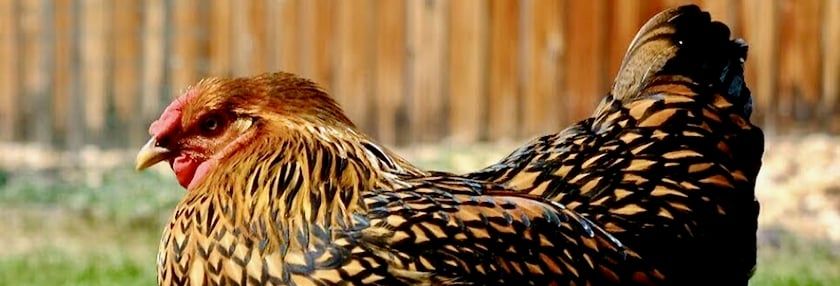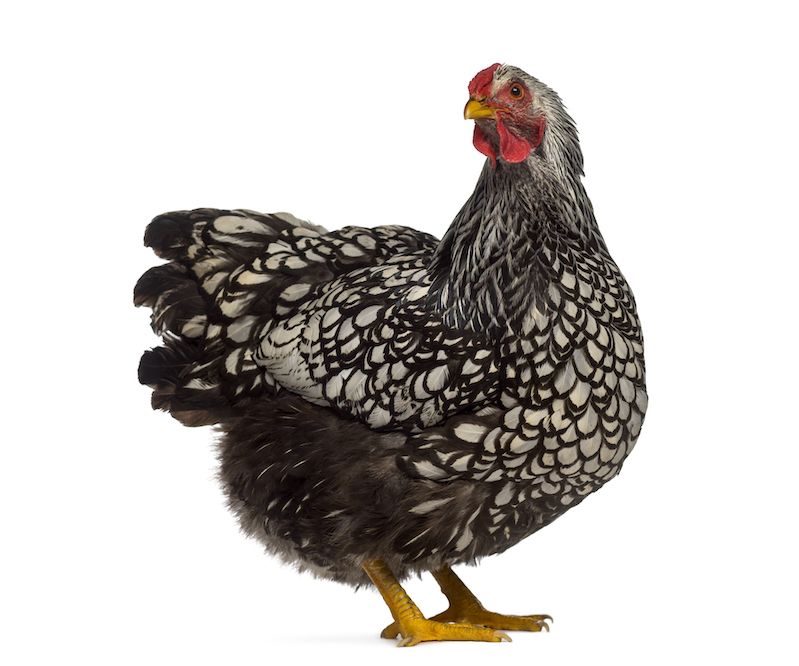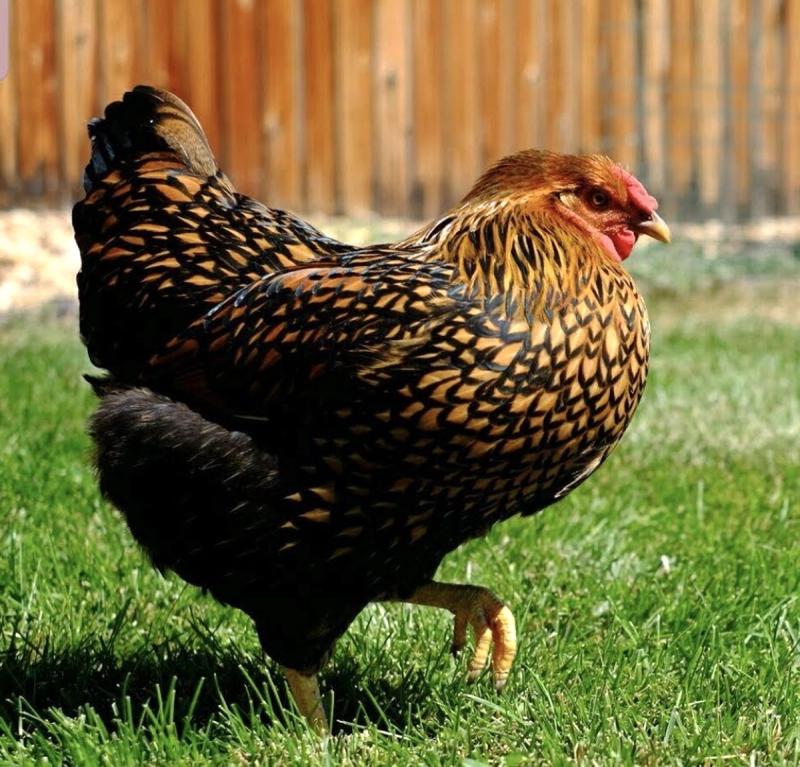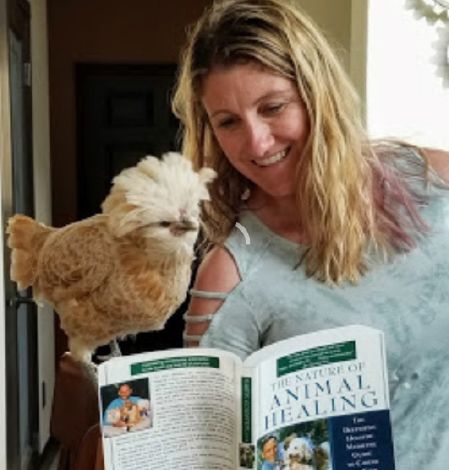The Wonderful Wyandotte


A backyard favorite for all the right reasons
All-American, beautiful, a high producer, and great companions…that’s the wily and wonderful Wyandotte!
A Northeast U.S. history
Considered one Americans favorite chickens, the breed’s background comes from North-Eastern parts of US… specifically, New York! Developed around 1870, the name “Wyandotte” is termed after a Native American tribe who helped migrants sell the first products in the area.
The first recognized Wyandotte was the Silver Laced; the origin is believed to have Silver Spangled Hamburg and the Dark Brahma heritage. From there, many different colors were born such as Black Laces, Columbian and Partridge. It is truly an American-born, diverse breed!
Enjoy the patterned appearance
The first thing you may notice about the Wyandotte is the lovely feather patterns. Each feather is brightly hued with a distinct colored ring around the outside, giving it the aptly named “lacing” pattern.
There are several different variations.

- Silver Laced: White feathers with black edges
- Golden Laced: Golden feathers with black edges
- Blue Laced Red: Blue laced red is a buff/red color with grey/blue edges
- Buff Laced: The buff laced is blonde with white edges
Solid and unlaced colors are also recognized. Some include:
- White—the rarest Wyandotte color
- Black
- Buff
- Columbian—White with a black tail, black wing tips and the neck is mainly black
- Partridge—Red color but with three black stripes, meeting at the middle of the feather then angling outwards
Wyandottes are full-bodied with fluffy feathers. These are sturdy, large birds with an upright appearance with red wattles, earlobes and rose combs and yellow legs. They are a stout 6-7 pounds for hens and 8- pounds for roosters.
A personality for beginning chicken keepers
Docile and gentle, these birds are friendly enough for beginner backyard chicken keepers but can also hold their own in a crowded coop. They tend to treat fellow henmates with an aloofness that puts them neither at the top nor bottom of the pecking order. They fair well in confinement, but prefer to be free range where they can peck and scratch to their heart’s content.
These chickens tend to be talkers, so keep that in mind if you intend to get more than one and still want to keep your neighbors happy! They have an especially exuberant “egg song” so you will never have to guess whose egg is whose.
Any health issues?
Wyandottes are remarkably robust chickens. Being cold-hardy, Wyandottes don’t have to worry too much about frostbite. Their small rose-combs rarely succumb to windburn and their fluffy feathers keep them well-insulated. That said, they still will need protection from the elements.
They can also fall victim to common chicken ailments like lice, mites and worms. Keeping your coop clean, providing a dust bath, and keeping a regular worming schedule will keep these illnesses at bay.

Egg production, continuously
Wyandottes make good layers. They produce a respectable 3-4 large, cream or light brown eggs a week. One major benefit is these birds lay throughout the year! When your other hens halt egg production for the winter, Wyandottes keep laying.
They can tend towards broodiness, which make them good mothers (or nannies).
In conclusion
If you are looking for a true American breed of chicken which is beautiful, cold-hardy, sturdy, docile and a good layer, definitely consider the Wyandotte. They will make a lovely statement bird in your flock and keep your egg cartons full!
Tags:Chicken Chatter

Acreage Life is part of the Catalyst Communications Network publication family.
















